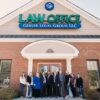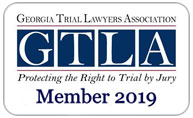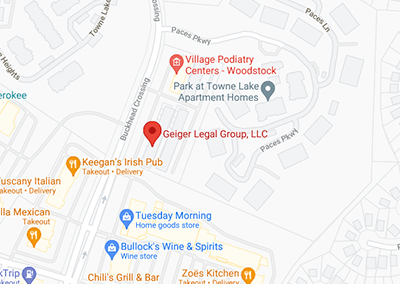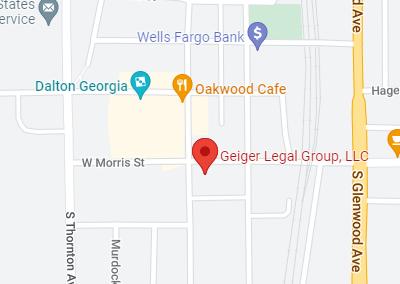Understanding the Rights of Nursing Home Residents in Georgia
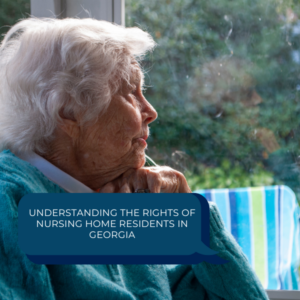
In Georgia, nursing home residents have the right to a safe, clean, supportive environment where they can live in dignity.
Overview of Nursing Home Residents’ Rights in Georgia
Georgia has a Long-Term Care Facilities Residents’ Bill of Rights that codifies the rights of nursing home residents. Rights of the elderly in nursing homes in Georgia include:
- Nursing home facilities must conduct new employee training and quarterly training for current employees to ensure familiarity with the Residents’ Bill of Rights.
- Facilities must provide the resident or their representative with the name, address, and telephone number of the resident’s physician.
- Residents have the right to have their family or guardian(s) notified of significant changes in the resident’s health.
- Residents or their guardians have the right to a copy of the resident’s non-medical records.
- Residents legally eligible to vote have the right to vote in all elections or referenda and the right to the facility’s assistance in obtaining voter registration forms or absentee ballots.
- Residents have the freedom to practice their religious beliefs. Facilities or their employees may not impose religious beliefs or practices on residents.
- Residents can associate and communicate in private with people of their choosing and participate in social, familial, community, and religious activities on or off facility grounds.
- Residents have the right to rise and retire at any time, provided they do not interfere with the rights of other residents.
- Residents have the freedom to enter and leave the facility as they choose, although facilities can require residents to provide notice of the times they leave and enter.
- Facilities must have at least 12 continuous visiting hours per day.
- Residents have the right to privacy in their rooms, and staff are required to make their presence known when entering resident rooms.
- Residents have the right to maintain and use personal property in their living quarters, and facilities must provide means for residents to secure their property.
- Residents have the right to adequate and appropriate care and treatment for their condition, including the right to periodic review of their treatment plan. Residents also have the right to refuse any medical treatment, medication, or dietary restriction, except where such refusal would cause injury, illness, or death.
- Residents have freedom from actual or threatened restraint or isolation.
- Residents have freedom from discrimination through refusal of admission or continued residency.
Common Challenges Faced by Nursing Home Residents
Nursing home residents face vulnerability to wrongful conduct by facilities and staff that violates elderly rights, including:
- Abuse: Residents may suffer physical abuse, such as hitting, beating, slapping, pushing, improper restraint, or sexual abuse.
- Neglect: Neglect occurs when facilities and staff fail to provide basic care or necessary services, including shelter, clothing, food/water, or medical care.
- Exploitation: Exploitation or financial abuse may involve taking a resident’s money or property through theft, undue influence, coercion, or deceit.
What to Do If You Suspect Rights Are Being Violated
If you or a loved one have had your rights violated in a nursing home, steps you can take to protect your interests include:
- Report suspected rights violations to Adult Protective Services, the Georgia Division of Aging Services, or the Georgia Department of Community Health Healthcare Facility Regulation.
- Seek prompt medical attention for any injuries, illnesses, or health complications.
- Keep all bills, invoices, and receipts.
- Contact a nursing home abuse attorney to learn more about how the elderly lose their rights in long-term care facilities and get help to protect your or your loved one’s rights.
Contact Our Georgia Nursing Home Abuse Attorneys for Help
When you or a loved one has become the victim of nursing home abuse or neglect, get the legal help you need to pursue accountability and financial compensation. Contact Geiger Legal Group, LLC, today for a free, no-obligation consultation with an elder abuse lawyer to discuss your legal options.

